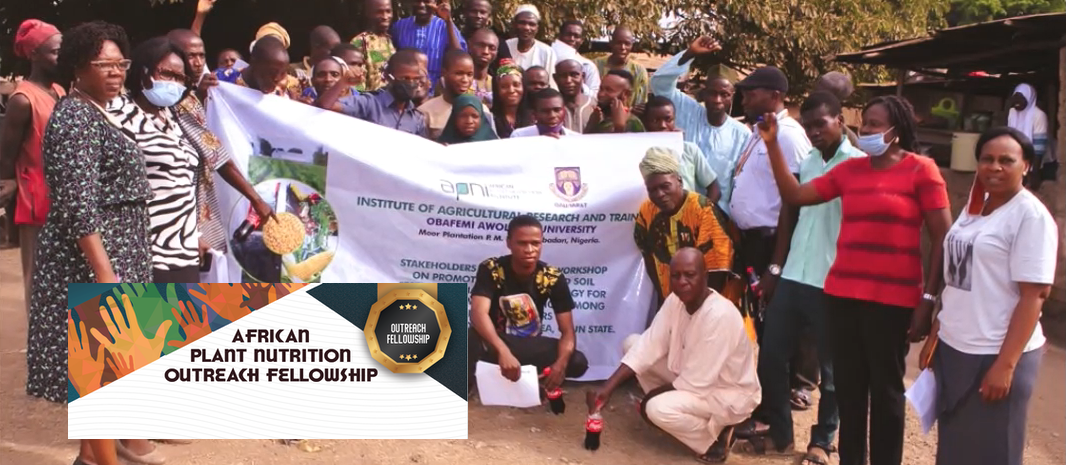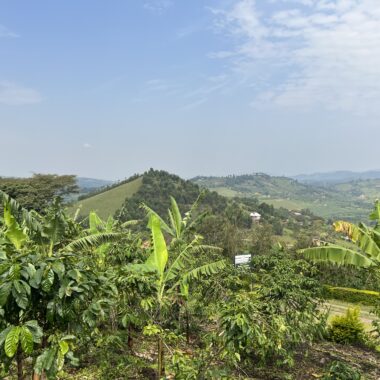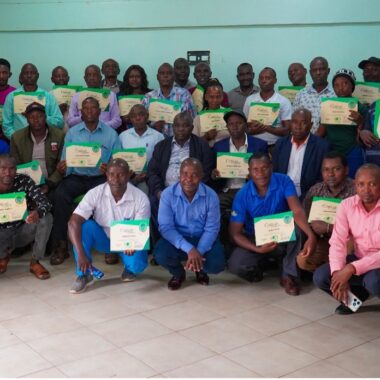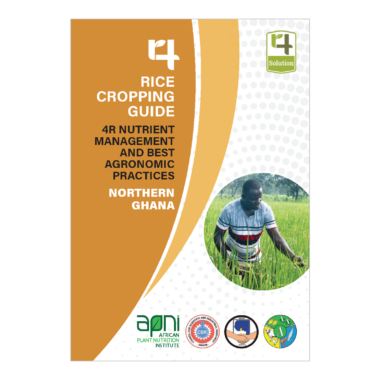New Outreach Program Delivers Integrated Soil Fertility Management (ISFM) Technology to Smallholder Maize Farmers of South West Nigeria
Soil plays a fundamental role in supporting plant growth. Yet, this important resource is often neglected and mishandled by smallholder farmers and this commonly leads to soil nutrient mining, low soil fertility, and poor crop yields.
Maize is an important staple food crop widely cultivated in south west, Nigeria. The crop has a relatively high annual requirement for fertilizer input and inadequate nutrient input continues to expose the region’s maize-growing fields to a high degree of nutrient depletion.
Prof. Bosede Lawal, Researcher at the South West Farming Systems Research and Extension Programme within the Institute of Agricultural Research and Training (IAR&T) at Obafemi Awolowo University, is leading a project designed to reverse this trend through more widespread implementation of sustainable Integrated Soil Fertility Management (ISFM) technology and practices amongst the smallholder maize farmers of south west Nigeria.
The Approach
Prof. Lawal is promoting integrated use of improved varieties, good agronomic practices, site-specific fertilizer recommendations through a variety of popular outreach channels. Dr. Lawal’s proposal for this work was awarded by the African Plant Nutrition Outreach Fellowship Award, an initiative of APNI, OCP Group, and the Mohammed VI Polytechnic University (UM6P), which was created to encourage innovation in education, training and communication programs relevant to improving the use and efficiency of plant nutrients in African agro-ecosystems.
On farm demonstrations, farmer field schools coupled with communication tools such as text messaging, radio jingles, and knowledge products form an effective information dissemination program to extend the widely needed ISFM technology.
Achievements So Far
The program started with a series of farmer sensitisation workshops used to introduce ISFM technologies to participants near project sites between February and March 2021. Awareness was built amongst farmers and extension workers alike with over 200 people in attendance.
A baseline survey was conducted to identify constraints to maize production at each of the study locations. Interaction with farmers during the survey revealed considerably low use of inorganic fertilizer and poor maize yields at the study locations. Generalized blanket approaches to nutrient application, without prior soil testing, were common amongst locations.
“Many of the farmers had awareness on the sole use of inorganic fertilizer but lack adequate training on composting, combined use of organic and inorganic fertilisers, and soil testing,” explained Prof. Lawal. “Farmers largely relied on seeds from previous harvest and those procured from the market or local input dealers but had no or little access to improved seeds.”
Other common constraints experienced by farmers are low and erratic rainfall, high cost of fertilizer, pest and diseases, and farmer-herdsmen clashes.
Late on-set of rains delayed the establishment of the plots and farmer field schools in this savanna agroecology but the more recent arrival of stable rains spurred progress for the project. On-farm demonstration plots were located within Ilawo and Ife Odan in Ejigbo Local Government Area of Osun State, and Itapaji and Aiyedun in Ikole Local Government Area of Ekiti State. The treatments used for the field demonstration were made up of improved maize varieties and different sources of fertilizer. Improved maize varieties with better tolerance for drought and low soil nitrogen were sourced from IAR&T.
Plots compared different soil amendment treatments including: organic fertilizer, inorganic fertilizer, combinations of organic and inorganic fertilizer, and a control with no fertilizer application. Fertilizer recommendations included zinc (Zn) when deemed necessary by soil testing. Maize was sown at a plant spacing of 75 cm by 25 cm at one seed per hill.
“Farmers played an active role in the establishment and management of the demonstration plots at all project locations,” said Prof. Lawal. “These demonstrations serve as learning plots for farmers that are expected to last for the entire cropping cycle. This will give farmers the best opportunity to observe the merits and demerits of the ISFM technology and make informed decisions.”
Each farmer is expected to train other farmers on the ISFM technology through the establishment of their own ISFM maize plots thus accelerating adoption beyond the project sites. Training of farmers on each component of the ISFM technology is on-going. Awareness programs also continue to spread the ISFM experiences of participating farmers through communication tools (radio jingles and text messaging).
The Way Forward
It is expected that at the end of the seasonal cycle, field days would be organized to showcase the merits of ISFM technology.
“At the end of this project, farmers will have been empowered to make use of ISFM technology,” explained Prof. Lawal. “This will eventually translate to improved soil fertility, increased maize yields with better quality, and ultimately will contribute to food security, poverty reduction, and the improvement of livelihoods within south west Nigeria.”
For more information about the African Plant Nutrition Outreach Fellowship Award please see https://www.apni.net/project/outreach-fellowship
Contributors: Prof. Bosede Lawal, Researcher at the South West Farming Systems Research and Extension Programme within the Institute of Agricultural Research and Training (IAR&T) at Obafemi Awolowo University; Gavin Sulewski, APNI Editor.





